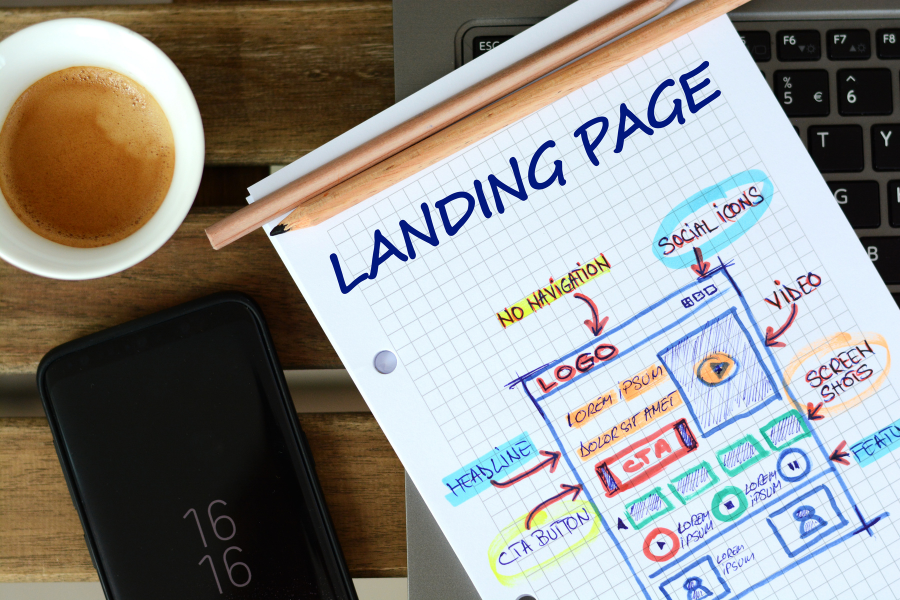Introduction
Location-specific landing pages are more than just a trend; they are the backbone of a successful local SEO strategy.
In this guide, we’re going to explore the intricacies of local landing pages, how they can skyrocket your online visibility, and the best practices to make them work wonders for your business.
What Are Location Pages Used For?
Location Detail Page
Think of a location detail page as a digital welcome mat.
It’s where you roll out the specifics about a particular branch or outlet.
Let’s say you’re the proud owner of a string of family-friendly restaurants.
Each restaurant has its own vibe and story.
A location detail page lets you paint the picture – from the cosy booths to the quirky staff.
Location Services Page
Now, let’s talk about the location services page.
This is your stage to shine a spotlight on services that are tailored for different locations.
Imagine you’re a spa owner with branches in various neighbourhoods.
A location services page can detail the tranquil massages offered in one area and the rejuvenating facials in another.
For a more in-depth view, check out our “How to create a Service Page” post.
City Page
Zoom out a bit, and you’ve got the city page.
This isn’t just a list of addresses; it’s your love letter to a city.
Let’s say you run a chain of art studios across town.
A city page isn’t just about stating locations; it’s about capturing the creative spirit of each neighbourhood and weaving them into a vibrant tapestry.
Best Practices for Optimizing Local Landing Pages
1. Avoid Duplicate Content
Duplicate content is like reheated pizza – it’s never as good as fresh.
Each local landing page should have its unique flavour. No copy-pasting. Why?
Because Google frowns upon it, and your audience deserves better. So, serve them a fresh slice of content, seasoned with the essence of each location.
2. Meta Titles and Meta Descriptions
If your local landing page were a resume, the meta title and description would be the elevator pitch.
Craft them with care. Imagine you own a chain of fitness centres.
Your meta title could be “Get Fit with Norwich’s Best Gym.” It’s like a siren call to the health enthusiasts in your area.
3. H1 and Heading Tags
Headings are your page’s GPS.
The H1 tag is the leading destination and the H2, and H3 tags are the pit stops.
For instance, if you’re running a network of pet stores, your H1 could be “Find Your Furry Friend at Norwich’s Pet Paradise.”
The H2s could guide visitors through pet accessories, grooming services, and more.
4. Content Quality over Spam
Your local landing page isn’t a billboard; it’s a conversation. Provide value.
Share stories. Let’s say you have a chain of gardening centres. Don’t just bombard visitors with product listings.
Educate them about seasonal planting, offer tips for a lush lawn, and share local success stories.
5. URL and Image Optimization
URLs and images are like the icing on a cake – they should be sweet and well-presented.
A clear, concise URL structure makes navigation a breeze.
And images?
They should load like lightning. After all, nobody likes waiting for a picture of a cute puppy.

6. Location-Specific Information
Your local landing page isn’t a Wikipedia article; it’s a love letter to your locale.
Pepper it with local flavour.
Let’s say you’re a boutique hotel owner.
Mention nearby attractions, secret spots, and maybe even a favourite local recipe.
7. Utilizing Original Locality Photos
Original photos add authenticity to your page. Show the neighbourhood through your lens.
Let’s say you run a chain of cafes.
Share snapshots of baristas crafting lattes, local artwork adorning the walls, and maybe even a candid shot of the sunrise from your cafe’s window.
8. Showcasing Local Charities and Organizations
Being part of the community isn’t just about business; it’s about connections.
If you sponsor a local event or collaborate with a charity, shout it from the virtual rooftops.
It’s not just a marketing strategy; it’s a commitment to your local community.
9. Incorporating Local Professional Organizations
Membership in local professional groups adds a sprinkle of credibility.
Let’s say you’re a real estate agent. Mention your association with the Chamber of Commerce.
It’s like a seal of approval from the local business fraternity.
10. Including Address and Google Maps Integration
Don’t make your visitors Sherlock Holmes.
Your address should be visible without magnifying glasses.
And Google Maps?
It’s like handing them a treasure map with a great big X marking your spot.

Leveraging Local Connections for Success
Now, it’s time to add the secret ingredient to your local landing page recipe: connection.
Think of your page as a bridge connecting your business with the local community.
Share stories of how you’ve touched lives, from hosting local events to supporting community initiatives.

In the world of local landing pages, it’s not just about SEO rankings; it’s about creating a digital town square where your business and the community meet.
So, as you craft your local landing pages, remember, it’s not just content; it’s a conversation. It’s not just a webpage; it’s a connection.
And when you get it right, your local landing pages become more than pages – they become the heartbeats of your community engagement.
Frequently Asked Questions
What Should Be Included in a Local Landing Page?
A local landing page should feature essential business information like address, contact details, and a map.
Include relevant images, concise descriptions, and a solid call to action tailored to your local audience.
Where Do You Find Landing Pages?
Landing pages can be found on websites, often linked to menu bars or buttons.
They’re commonly used for marketing campaigns and to showcase specific offers or services.
Businesses frequently create landing pages to drive local conversions.
Where Can I Get a Free Landing Page?
Several online platforms offer free landing page templates and builders.
Websites like WordPress, Wix, and Mailchimp provide user-friendly tools to create basic landing pages.
Keep in mind that free options may have limitations compared to paid services.
Can I Just Have a Landing Page?
Yes, a landing page can be a valuable addition to your online strategy.
It’s an effective tool for focusing on a specific offer, product, or service, and encouraging visitors to take a desired action.
However, for a comprehensive web presence, consider having a complete website as well.

